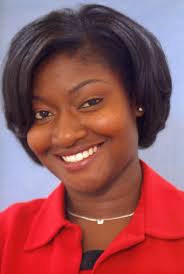
Say school choice and some Democrats say profits, privatization, Republican plot.
Democrat Alisha Thomas Morgan says equal opportunity.
“We’ve got to put policies in place to ensure that how much my parents make or the neighborhood I live in does not determine the quality of education,” Morgan, a state representative in Georgia, says in the redefinED podcast attached below. “And so I think in terms of leveling the playing field, in terms of equal access, in terms of equality. To me, these are very much Democratic values and why I support school choice.”
Morgan is among a new breed of Democrats, many of them younger, many of them minority, who are embracing school choice despite the strains it can put on their relationships with fellow Dems and longtime allies. First elected in 2002 – at the age of 23 – Morgan, a Miami native, said she underwent her own evolution on school choice in part because conversations with parents led her to recognize “a lot of my opposition was really political.”
Now she’s a rising national star in school choice and ed reform circles, a Democrat who hasn’t been afraid to step out front on charter schools and tax credit scholarships in her home state and politely encourage other Democrats to live up to their core principles. “Education is not a Democrat or Republican issue; it’s a kids’ issue,” she said. “But I do think that Democrats should provide leadership here, and not be sort of dragged along as these reforms happen across the country.”
That’s not to say Morgan doesn’t empathize. It can be lonely as a pro-school-choice Democrat, she said. And it can be tough convincing other Democrats when their positions are at odds with Republicans on so many other issues. “What I’ve learned to do is to separate that we agree on this set of issues and these things we can work together; the other things, I’m going to fight you, just like the other Democrats do,” she said. “But I don’t think some of my friends on the Democratic side have been able to make that separation.”
In the interview, Morgan also said:
The privatization argument doesn’t make a lot of sense.
“There may be some people in the education reform space who want to see more privatization in public education, sure. But I think that’s a very small element. I haven’t actually met any of those people, but I will acknowledge that that is a possibility. But all the people I work with, and know very well who do this work, their interest really is in kids and making sure that they’ve got options. Whether it’s public or private, we just want to do the best for kids and not leave it to some district-run or some arbitrary process to decide what’s best for kids.”
Black parents support charter schools because they want change. Speaking about black majority support for last year’s charter school amendment in Georgia, she said, “Did the parents understand, or did the voters understand, every nuance of the legislation? No. But what they do understand is that what we currently have isn’t working and I’m desperate for something that’s better for my child. And they see, whether it’s a charter school, just whatever the additional options are, they are desperate for it. And I think that’s what the vote was. And so I was not surprised, because I am very connected to the community. And I hear these conversations on a daily basis.”
Parents are key to moving more Democrats to pro-choice positions. “Florida is a great example. … Look at the tax credit scholarship program, which was widely opposed by Democrats and black caucus members in particular (when lawmakers passed it in 2001). But if that vote were taken again today, there would be a large amount of support. And what made the difference? People got parents organized. Parents who wanted those options, who are seeing those options work for their kids, are speaking to their policy makers. And so we’ve got to see more of that.”


